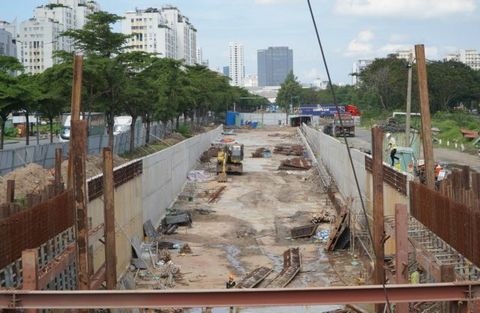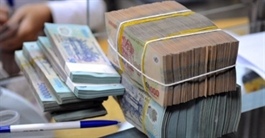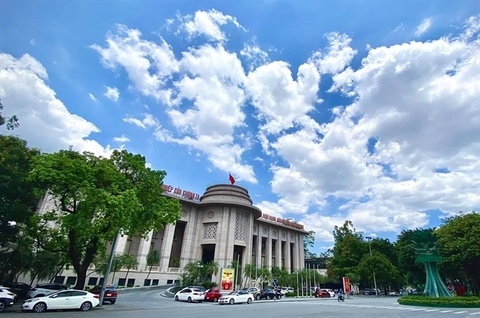Gov't proposes to continue 2% interest rate support policy
Gov't proposes to continue 2% interest rate support policy
The Government has put forward a proposal to continue with the 2 per cent interest rate support policy for enterprises, cooperatives, and business households, during a meeting of the National Assembly on Wednesday.

A road construction site in HCM City. — VNA/VNS Photo |
Deputy Minister of Planning and Investment Đỗ Thành Trung said the policy, among others, had been playing an important part in boosting economic recovery. As of the end of September 2023, approximately VNĐ95.7 trillion had been disbursed under numerous support schemes and policies.
There was a need to review the current developments as some policies had exhausted their budget while others had not produced desirable results or had been moving along too slowly.
In addition, the Government advised that the policies be extended until the end of 2025.
A government report says Việt Nam has allocated approximately VND154 trillion under the programmes for 2022-23, aiming to expedite the commencement of construction for economic and social infrastructure projects, high-speed roads, and major border-crossing bridges.
However, there have been challenges and obstacles including delays in completing investment procedures, allocation, and planning of funds for certain tasks and projects resulting in some projects facing difficulties in fully disbursing the allocated funds.
Therefore, the Government proposed the NA's Standing Committee greenlight the transfer of available resources, estimated at VNĐ16.1 trillion, into four preferential lending policies. The Government also proposed the cancellation of a number of programmes under the management of the Ministry of Labour, Invalids and Social Affairs and the Ministry of Education.
Chairman of the NA's Economic Committee Vũ Hồng Thanh asked the Government to conduct additional review and research into the above-mentioned challenges and obstacles to speed up the disbursement of public investment capital from the beginning of 2024, especially for critical national projects, key infrastructure, and the three National Target Programs.
He said top priorities should include the domestic market, promoting trade, expanding and diversifying markets, improving product quality, and participating more deeply and widely in regional and global supply chains, striving for a sustainable trade surplus.






















